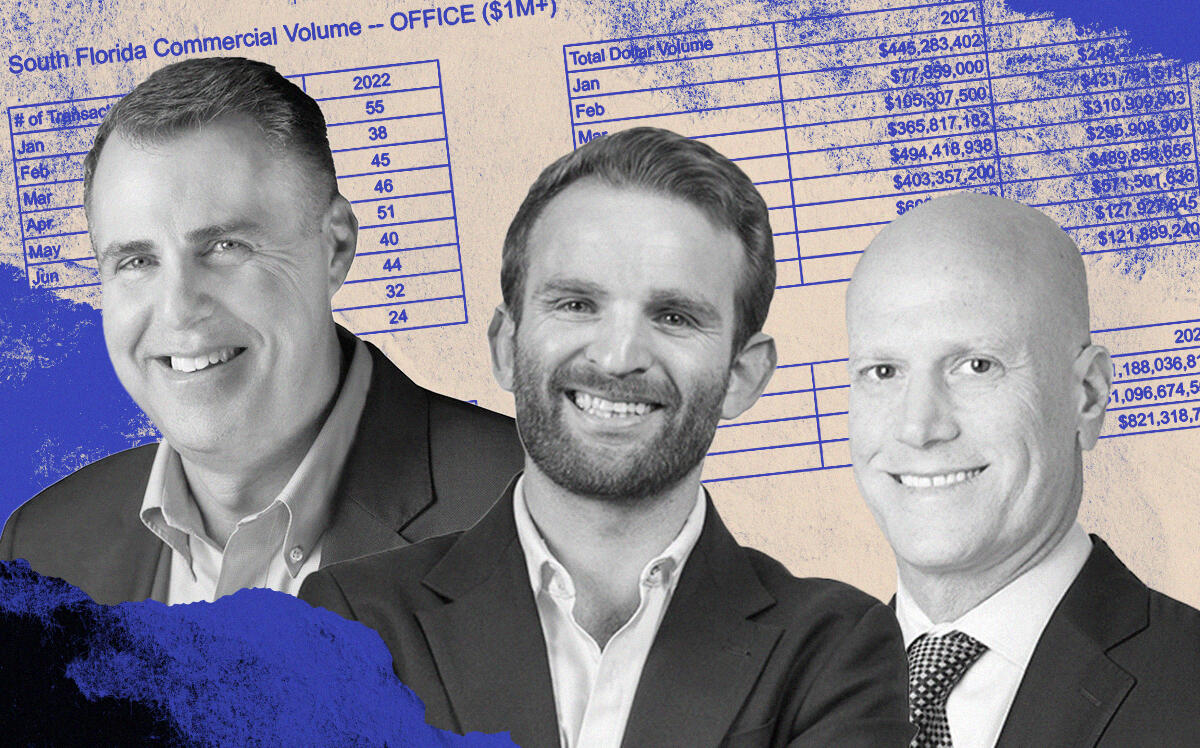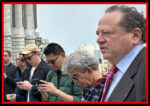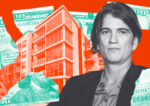 Spurred by new-to-market firms, South Florida office rents hit record highs
Spurred by new-to-market firms, South Florida office rents hit record highs
Trending
South Florida office sales nosedive
Despite leasing frenzy and record asking rents, investment sales dropped in the third quarter

The decline in office investment sales gripping major U.S. markets has reached South Florida.
Over the past two years, the tri-county region emerged not only unscathed but as a winner, hosting sizzling hot leasing activity. It attracted major out-of-state firms, while much of the rest of the U.S. was faced with a decline in occupancy and, in some cases, an exodus of tenants.
But South Florida won’t dodge the most recent market affliction: a slowdown in deals created by high borrowing costs.
Across Miami-Dade, Broward and Palm Beach counties, office investment sales volume dropped to $821.3 million in the third quarter, a 37 percent decline compared with the same period of last year, according to real estate deals database Vizzda. The decline was most pronounced in September, when deal volume reached nearly $122 million, 66 percent less than September of last year, according to Vizzda, which tracks sales over $1 million.
Other market watchers similarly show a slowdown. CoStar Group, which tracks all office sales, reported $197.9 million in deals in September, or a 50 percent decline, year-over-year. Real Capital Analytics, which tracks sales over $2.5 million, pegged deal volume for that month at $89.8 million, or a 70 percent drop. (Colliers, which compiled and provided the CoStar and RCA data, confirmed its researchers have used Vizzda and it’s a credible source.)
“Capital markets have come to a screeching halt, particularly for office properties,” which is creating an imbalance between sellers’ and buyers’ expectations, said Jonathan Kingsley of Colliers.
This “imbalance,” or the so-called bid-ask gap, is how much landlords expect to get for their properties, versus how much buyers can pony up.
The Federal Reserve’s steady interest rate hikes, which are meant to tame inflation, have dented investors’ buying power, and often left them with few options but to put in more of their own equity. Plus, a lot of lenders have opted out of bankrolling office purchases altogether, in light of looming questions on whether workers will ever again return to their cubicles full-time, brokers and investors said.
If he had to quantify it, Avison Young’s David Duckworth said buyers are now offering roughly 10 percent to 15 percent less than they did six months ago.
At the same time, South Florida property owners are particularly unlikely to budge. Robust leasing and continued demand for space has made landlords unwilling to drop pricing, especially when they have been able to push rents to new highs.
Read more
 Spurred by new-to-market firms, South Florida office rents hit record highs
Spurred by new-to-market firms, South Florida office rents hit record highs
 Mapping out Ken Griffin’s Miami shopping spree
Mapping out Ken Griffin’s Miami shopping spree
 NYC investment sales plummeted in Q3
NYC investment sales plummeted in Q3
South Florida started the year strong, recording $1.2 billion in office deal volume in the first quarter, outpacing the same period of last year by 89 percent, according to Vizzda. Investment sales took a slight hit in the second quarter, falling 13 percent, year-over-year, to $1 billion.
Even though the Fed started increasing interest rates in the spring, South Florida didn’t record a notable decline until September.
Ben Mandell of Tricera Capital said properties placed under contract months ago suddenly no longer made financial sense when buyers sought debt after the rate hikes.
“You are seeing it now because these transactions take 60 to 90 days, to 180 days, from signing of a purchase-and-sale agreement to closing,” he said, adding that multiple buyers have canceled contracts.
Mandell’s Miami-based Tricera walked away with its refundable deposit for a Brickell office property it had put under contract after borrowing costs rose, Mandell said.
“We didn’t feel comfortable proceeding when the value decreased,” he said.
When investment sales will resume is unclear, but chances are the environment will worsen before it gets better, Duckworth said.
Last week, when the Fed imposed another 75 basis point hike, it also indicated subsequent rate increases are in store.
The gap between how much buyers will pay now, versus this past spring, Duckworth said, “is more likely to grow than to narrow.”




